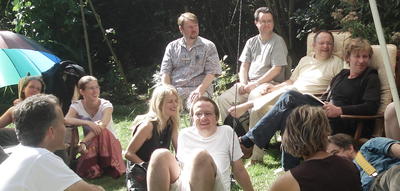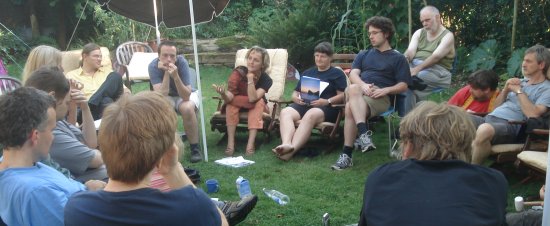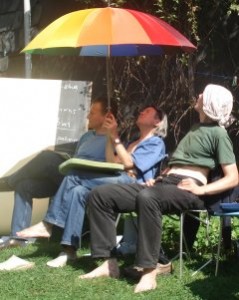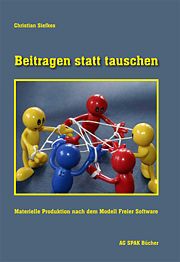 Free design is an important building block for spreading peer production, but it is not enough. A second topic discussed in Hiddinghausen was therefore how to facilitate and encourage the sharing and the shared production of physical goods and of services in all areas of life. My proposal here is called the Commons Network.
Free design is an important building block for spreading peer production, but it is not enough. A second topic discussed in Hiddinghausen was therefore how to facilitate and encourage the sharing and the shared production of physical goods and of services in all areas of life. My proposal here is called the Commons Network.
The Commons Network is inspired by the practices of free software and free content projects, where people do things they like to do (such as writing software or texts) and, by doing so, produce goods that are useful for others; but also by the approach of wireless community networks where the participants jointly build a free network, allowing everyone to transfer data through the free network or to access the Internet through it. Community networks are interesting because they organize the free sharing of limited resources that cannot just be copied freely (bandwidth and Internet access). And some community networks are interesting in that they’re self-organizing and self-healing: whenever nodes (participating computers) join or leave such a mesh network, it reconfigures itself to ensure that all data still finds the best route through the network.


 Mein kontrovers diskutiertes
Mein kontrovers diskutiertes  [Diesen Artikel gibt es noch nicht auf Deutsch. Wenn du dazu beitragen willst, das zu ändert, beteilige dich bitte an der
[Diesen Artikel gibt es noch nicht auf Deutsch. Wenn du dazu beitragen willst, das zu ändert, beteilige dich bitte an der